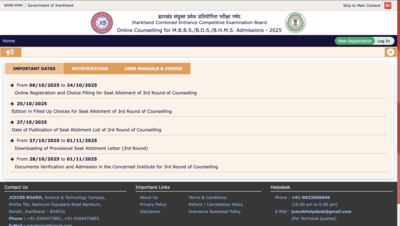7 skills Harvard says will keep you employed in the age of ChatGPT

Generative AI like ChatGPT is changing work fast but here is the good news from Harvard research – the things that machines are worst at and humans are best at are also the things that predict who stays valuable. The rise of generative AI technologies like ChatGPT is revolutionising the workplace, automating routine tasks and transforming roles across industries. Harvard University research underscores that while some jobs may be displaced, a set of adaptable and durable skills will remain essential to staying employed and thriving. These skills blend technical literacy with uniquely human capabilities crucial for working alongside AI and in complex environments.Here are seven high-leverage skills that Harvard researchers and Harvard projects repeatedly highlight –
Critical thinking and source evaluation because AI can be fluent and wrong
AI produces plausible-sounding answers. The ability to question, check sources, spot bias and triangulate information is now essential. A 2024 study by Harvard Graduate School of Education, shared that educators must teach students how to evaluate and interrogate AI outputs to ask where the information came from and whether it should be trusted. Harvard GSE’s toolkit argues that critical thinking like source checking, cross-verification and sceptical reasoning should be taught explicitly in an AI era so that people don’t uncritically accept machine outputs.
AI fluency : Practical, hands-on ability to use AI safely and productively
Workers who know how to prompt, evaluate and integrate AI tools into workflows multiply their productivity while those who don’t will be outpaced. A recent 2025 data by Harvard Business Publishing Corporate Learning shared, “AI fluency is learned by doing: the most fluent employees practice often, experiment boldly and integrate AI into real work.” Harvard Business Publishing’s study of thousands of employees shows AI fluency isn’t theoretical but built through iterative and hands-on use. Organisations that give workers real practice produce the most capable AI users.
Complex problem-solving and creative sense-making (framing problems AI can’t frame)
Machines can optimise within a given frame but humans must set the frame, spot trade-offs and invent new goals. Creativity and problem framing are premium skills. As per a November 2015 study by Harvard Business Review, traditional organisational habits like obsession with success and action undermine continuous improvement. Structured reflection and experimentation are needed to surface novel solutions. HBS research synthesized in HBR show why disciplined reflection and creative sense-making (post-mortems, experiments) are how humans convert messy problems into learnable opportunities and are work that AI can’t fully automate.
Communication, persuasion and emotional intelligence : Soft skills that unlock influence
AI can draft a memo while humans get buy-in, communicate nuance, persuade leaders and navigate organisational politics. These interpersonal skills determine who executes ideas. A 1999 Harvard-affiliated study, Psychological Safety and Learning Behavior in Work Teams, pointed out that psychological safety or a shared belief that the team is safe for interpersonal risk-taking, predicts whether team members will speak up about errors and learn from them. The influential research shows that teams where people communicate openly and respectfully learn faster. Communication and emotionally intelligent leadership, not rote outputs, are what enable teams to use AI safely and creatively.
Lifelong learning and adaptability: Habit of reskilling, unlearning and relearning
AI changes which specific tools matter and the durable advantage goes to people who can learn new tools, pivot roles and pair human strengths with new technology. A 2023 study by Harvard Business School found that programs that combine academic coursework with relevant work experience increase employment in targeted industries and short-term earnings. This Harvard project on workforce stressed employer-aligned training and continuous skill updating and in practice that means workers who keep learning (micro-credentials, on-the-job training, apprenticeships) remain resilient as AI shifts task demand.
Ethical judgment and oversight: Detecting bias, protecting privacy and making value calls
AI can replicate bias or produce harmful suggestions but someone must review outputs for fairness, safety and legal/ethical fit. That human oversight is increasingly a job requirement. This is backed by a 2024 policy paper by Harvard Kennedy School, which insists that the challenge is not only technical but institutional so we must design rules and practices that promote beneficial uses of AI and limit its abuses. Harvard Kennedy School policy work emphasizes governance, ethical oversight and institutional safeguards where professionals who couple domain expertise with ethical judgment will be indispensable in AI-enabled work.
Experimentation and the “small-wins” habit: Learn fast, iterate faster
When AI produces many options, the skill that wins is rapid testing with design quick experiments, measure outcomes and scale what works. This cycle is a human leadership capability. As per Harvard Business Review’s 2011 work, documenting progress and running frequent small experiments maintains motivation, accelerates learning and produces higher creativity. This is a management habit that multiplies the value of AI tools rather than letting them substitute for human judgment.Across Harvard’s schools and projects the message is consistent that people who combine judgment, social intelligence and the habit of continuous learning with practical AI fluency will be the ones employers keep. Technical tools change fast and these seven skills are the durable capabilities that let humans define problems, steer AI responsibly, learn from outcomes and persuade others to act.






